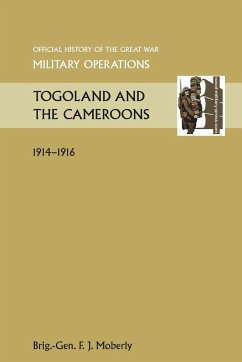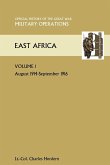This volume of the Official History of The Great War in subsidiary theatres contains a well-written account of a little-known campaign, overshadowed by the Western Front, Gallipoli and other theatres, including the war in German East Africa. The conquest of Togoland took just under three weeks, beginning on 7 August 1914 when troops of the Gold Coast Regiment crossed the border while French colonial troops moved in from Dahomey and Upper Senegal. It was all over on 26 August. On 12 August RSM Alhaji Grunshi, DCM, MM, of the Gold Coast Regiment, fired the first shot of the Togoland campaign and probably the first rifle shot fired by any soldier of the British Army in The Great War. The Cameroons campaign was a particularly arduous one; the troops had to contend with thick bush, wide rivers, swamps and rugged and hilly country, and the enemy resistance was stiffer. It began on 24 August when troops of the Nigeria Regiment crossed the border at various points, followed a month later by a Franco-British expedition under Brig (later Maj) General Dobell. A Belgian detachment from the Congo joined in October. The operation ended on 18 February 1916 with the German surrender, by which time an area the size of Germany had been conquered. No British troops were involved other than officers and NCOs serving with African units. Casualties were very light.
Hinweis: Dieser Artikel kann nur an eine deutsche Lieferadresse ausgeliefert werden.
Hinweis: Dieser Artikel kann nur an eine deutsche Lieferadresse ausgeliefert werden.








